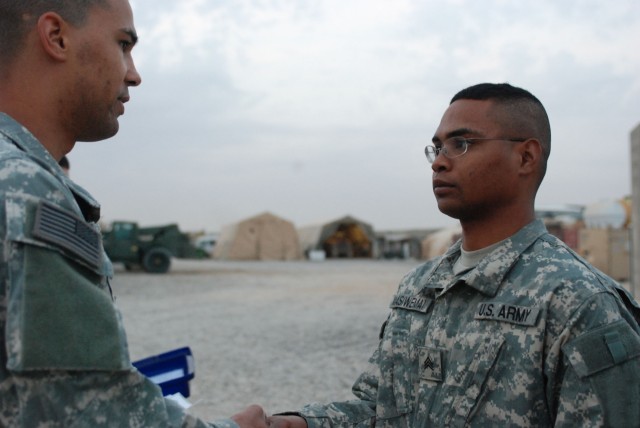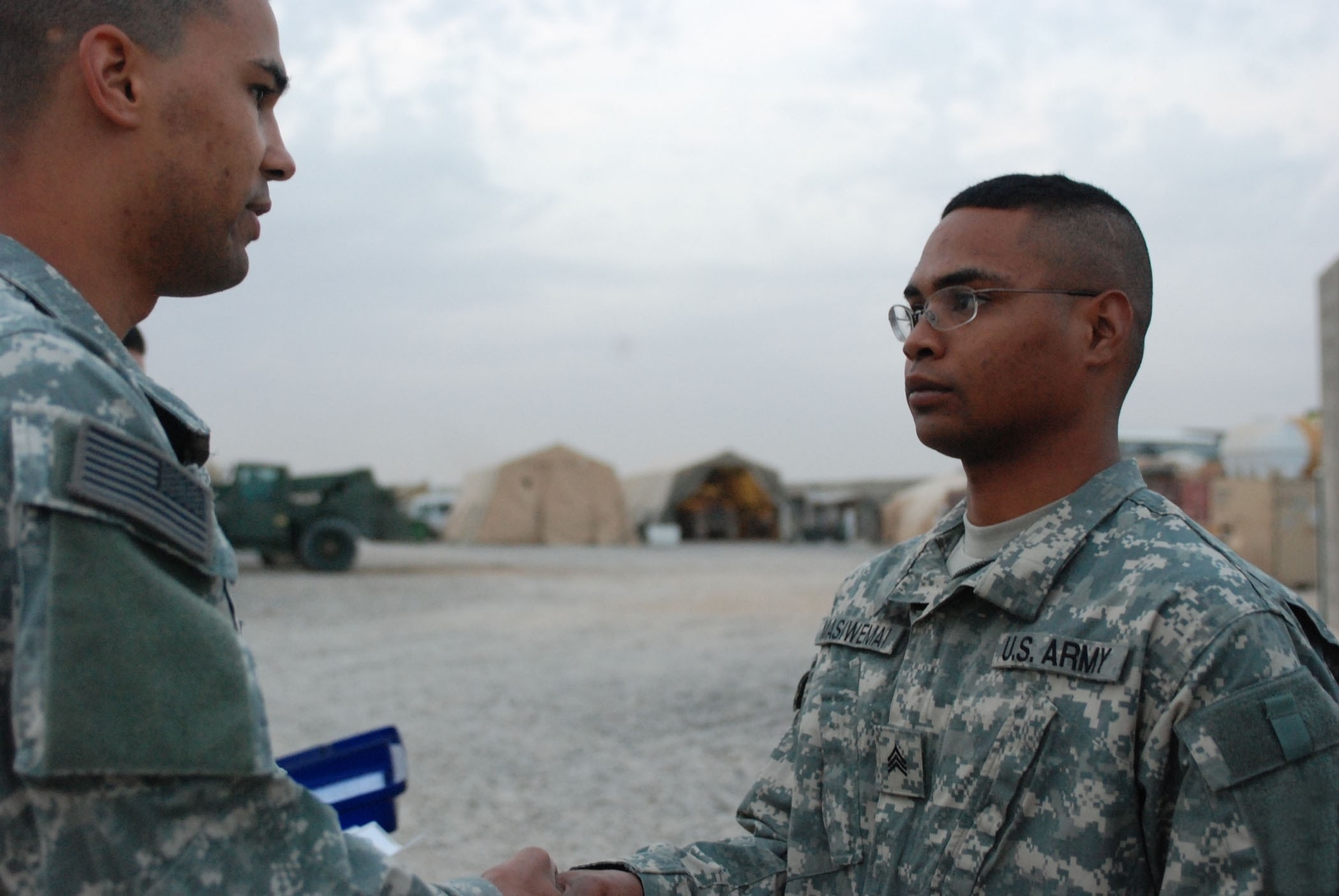FORT BRAGG, N.C. (Army News Service, July 23, 2008) - When Staff Sgt. Clarence Masiwemai greets someone, it's with a large grin and firm handshake. Beneath his smile, his chest and arm are covered in badges and awards that showcase his Army accomplishments, like the Combat Infantryman Badge, Parachutist Badge and esteemed Ranger Tab.
At 23, Masiwemai is a decorated combat veteran who's led Paratroopers in Iraq. In many ways, he seems like the prototype of a paratrooper on an Army recruiting poster.
However, Masiwemai wasn't always so picture perfect. Before he joined the Army he had somewhat of an anger problem; if someone looked at him funny he was ready to fight. In fact, he had so many brushes with the law because of his brawling that he needed a waiver to be allowed to join.
"If (someone) tried to make a joke and it was in reference to our friends, family or where we came from, we'd respond back with fists," said Masiwemai, the land and ammunition non- commissioned officer for Headquarters Troop, 1st Squadron, 73rd Cavalry Regiment, 2nd Brigade Combat Team, in reference to how he and his friends were. "Now I'm the one making the jokes."
Recently there's been a change in policy in regard to the amount of waivers that are granted to Army hopefuls with misdemeanors and, in some cases, a felony. According to Army Recruiting Command statistics, in the past three years the amount of recruits let in on conduct waivers has risen by 65 percent. About one in eight new armed service recruits are let in on these waivers.
There have been news articles and editorials released in such major media outlets as CNN, New York Times, and USA Today stressing concern for the quality of today's Soldiers.
But is there really any reason to be worried' As Masiwemai's example shows entering the Army on a waiver isn't a forecast of future misconducts.
In fact, according to a study done by the Army's Human Resource Command, Soldiers who enter the Army on a conduct waiver were more likely to re-enlist, were promoted quicker than their peers, and even won more awards and badges.
Like Masiwemai, Sgt. John Adkerson, a squad leader from Company A, 2nd Brigade Special Troops Battalion, 82nd Abn. Div., was let in on conduct waiver.
"Really, I joined because I wanted to, I needed to keep myself out of trouble," said Adkerson, an Alpharretta, Ga., native.
Adkerson has done more than that. He's in charge of seven soldiers and has led Paratroopers in combat in Iraq and Afghanistan. He's even received a Purple Heart after being wounded by shrapnel from a mortar.
"He leads from the front," said 1st Lt. Travis Pride, Adkerson's former platoon leader. "He's a good role model."
Adkerson will give out advice to his soldiers even if they don't necessarily know they need it, Pride explained.
When Adkerson was only a Private First Class he passed Ranger School, an intense combat leadership course, paving the way for a speedy promotion to the rank of sergeant in a little over two years. The average Soldier takes 4.2 years.
Masiwemai -"Masi" for short- also took two years to be promoted to sergeant; it took him five and a half to make staff sergeant.
As soon as Masiwemai, an Island of Yap, Micronesia, native, finished basic training he started to notice a change in himself as well as a few of his comrades who also came in on a conduct waiver.
"Right when they finished basic training was when they realized 'Hey, this is helping me out, I'm changing, I'm becoming a better person than I once was,'" Masiwemai explained.
Masiwemai feels that Soldiers who required a waiver end up doing well because they strive to improve themselves.
"They try harder to stay in the military by having an outstanding performance, by learning their job and knowing that the military is a great place to change yourself."
Adkerson believes that granting waivers to Army hopefuls with a questionable past helps get them off the streets and out of trouble.
"Waivers are the right thing to do," Adkerson said. "Instead of keeping people out of the Army it's going to help the kids and make them a better person to society... People say you join a gang to get a family, the Army's a tighter family than you'd ever have."
(Sgt. Susan Wilt serves with the 2nd BCT, 82nd Airborne Division Public Affairs.)


Social Sharing